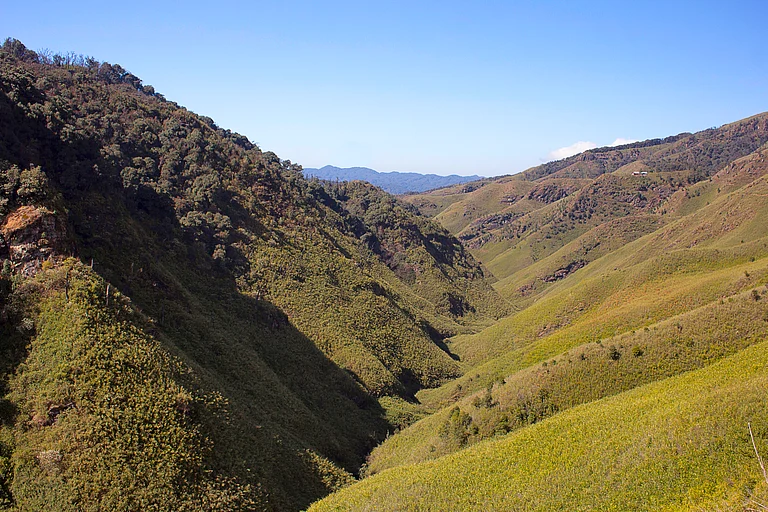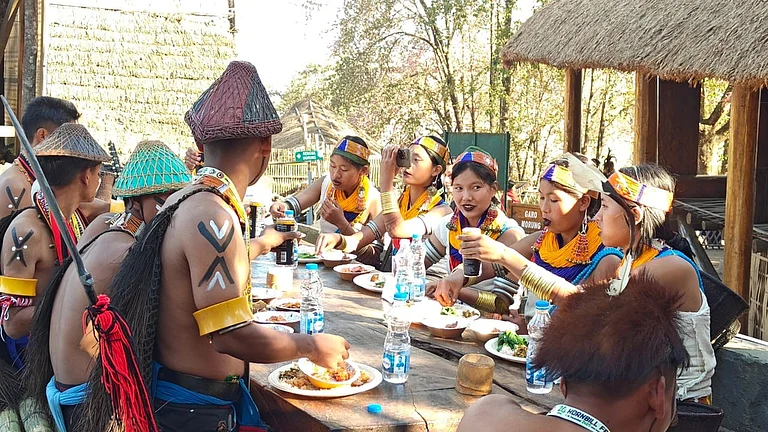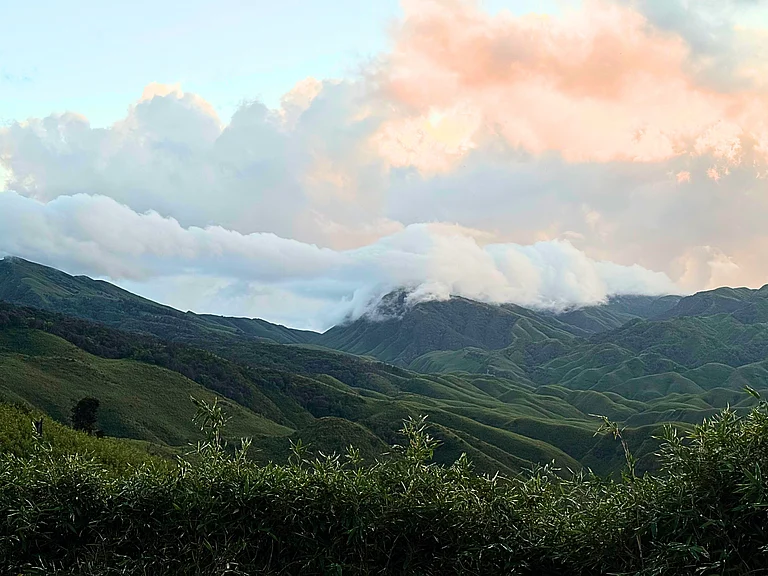If anyone asks you to define Nagaland's cuisine, you will be hard put to answer the question, for each of the north-eastern state's 17 major tribes has its own culinary tradition rooted in a history of isolation.
What's common to each bite of each preparation, though, is that it explodes in a cocktail of flavours in the palate, despite the minimal use of cooking oil and conventional spices.
It is the kind of food that guarantees zero weight gain without getting boring, for the people of Nagaland have mastered the art of playing with natural flavours and bringing out the best of each ingredient.
These were the thoughts swirling in this writer's head as he dug into the dishes prepared by Joel Basumatari, a Dimapur-based chef and sauce maker who has become the ambassador of Nagaland's treasure trove of cuisines, at Honk, the Chinese restaurant at Pullman, New Delhi Aerocity.
Joel, a jolly young man who thankfully did not follow the advice of his father's friends to follow the family tradition and become an electrical engineer, has a larder of refreshingly unfamiliar ingredients -- unfamiliar to us, but worth knowing better -- from tree tomatoes and Naga king chillies, which can on a good day out-Scoville the hot-hot bhoot jolokia, to bamboo shoot butter, dried mustard leaves, perilla paste, colocasia leaf patties and Zanthoxylum seeds, which are related to Sichuan peppers but have a different kind of zing,
I must admit here that I am off pork, so I could not sample such delicacies as the Sema tribe's favourite, pork seasoned with the aromatic mejenga leaves, or Thevochu Kese Sene, fresh pork with bamboo shoot, which is popular with the Angamis, or another staple of the Semas, Awoshi Kipiki Ngo Axone, smoked pork and fermented soya bean served with rice and boiled squash. As is obvious from the description of each dish, this is a minimally invasive bunch of cuisines.
Of course, Joel ensured that he did not let me regret my no-pork resolve. From crispy fried kholar beans -- an indigenous variety of kidney beans grown extensively in two Nagaland districts on the India-Myanmar border -- to the Ao beauty, catch of the day (river sole in this case -- and it tasted like God's gift to humankind!) roasted in bamboo tube with fiddlehead ferns.
I was left gob-smacked, though, by Joel's reinvention of the Chicken Roulade, marinated in the chef's own Saucy Joe's Smoked Chilli Sauce, stuffed with local oyster mushrooms and Zanthoxylum seeds, sitting on a bed of to-die-for pea puree.
Here was a happy co-existence of flavours and not a spice attack. In the Naga kitchen (and it is true of the rest of the north-east), ingredients walk, simplicity talks.
This standout characteristic of Nagaland's food tradition was also tastefully apparent from another Ao speciality, or chicken on bone cooked in the paste of perilla leaves, which are called shiso in Japan and are an important ingredient in that country's cuisines. Each dish came with its own attraction, but the overriding one was the power of nature's simple gifts.
Joel did not hold his creativity back from his desserts as well, flooring us with his millet cannoli packed with ricotta and nuts, with a generous drizzle of rosella sauce (a brilliant innovation that the Sicilians would do well to adopt!).
The other standout dessert was the black rice sponge cake -- I wish our hotels paid serious attention to ingredients such as black rice from the north-east and not keep importing them thoughtlessly.
It was a food coma that one wouldn't want to come out of. Joel deserves to be hailed for the work he's doing to put Nagaland on the gastronomic map of the world. More power to his food evangelism.


























